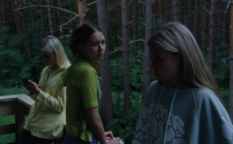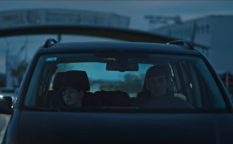Sarajevo review: Bottlemen (2023)
Sarajevo Film Festival
Documentary Competition
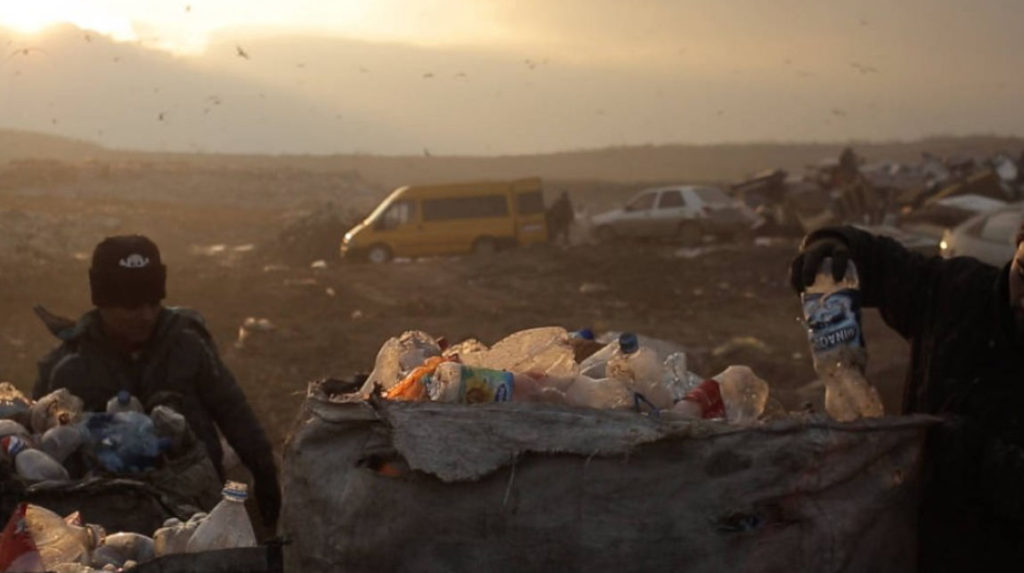
History sometimes has a weird sense of humour. For instance, once upon a time, Vinča was, as the archaeologist Miroslav K. would say, “the Frankfurt airport of the Stone Age”, as an intersection of the European neolithic cultures. Nowadays, it is relegated to a status of a Belgrade suburb where, until recently, was one of the largest landfill sites in the world. There, the titular characters of Nemanja Vojinović’s documentary Bottlemen used to work for their meager daily wages. The film victoriously premiered in the Documentary Competition slot of Sarajevo Film Festival, announcing the potential for a healthy and lengthy festival tour in near future.
Vojinović opens the film with the archaeologist’s witty quote, followed by a textual card that explains it in detail. After that, we get the visual confirmation in a vertically upward-moving tracking shot that shows layers in and above the ground, from archaeological and skeletal remains all the way to the garbage. Once the camera “surfaces”, we see that the garbage is burning (which might be a reason why Belgrade is on the European top 5 list for air pollution) and the firemen trying to put it out. Even before the filmmaker introduces his characters, he establishes the unique, stunning and surreal visual identity of this place.
Our protagonist is Yanika, an illiterate former boxer/ prisoner who now works as an informal group leader of the bottle-collecting crew. Their job consists of collecting bottles from the landfill, packing them into bags, further compressing those into bales and selling them by truckload to the “captain of industry” whom we never see, but we can hear him as he keeps putting the pressure on Yanika and the crew over the phone. Yanika’s job is to keep the crew made of usually equally desperate younger men who also tend to mess with alcohol and drugs in line. He is good at his job, firm enough to establish the authority, but also patient enough to share the tricks of the trade to the new member.
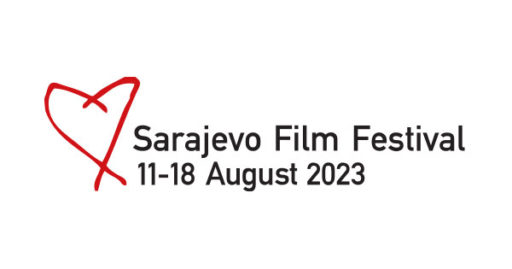
Of course, they are not the only crew in the business and even on the landfill. The competition is fierce, the thefts are not even a tiny bit uncommon, and since the whole business is, strictly speaking, illegal, there are no legal means of the “property” protection. But the real reason for Yanika, his men and rival gangs to worry are the rumours that the new waste management system will be introduced, meaning that they will loose their work. That leads to series of events, take-overs, Yanika’s departures to his home village near Novi Bečej and returns to Vinča since he has little skills other than garbage collecting.
Although it is filmed in more or less observational manner where the filmmaker and his crew are immersed into the landfill “ecosystem” to the point that they are largely ignored by their subjects (there is one exception, when one of the collectors acknowledges the existence of camera while talking over the phone about probably some shady deal), Bottlemen actually plays out like a piece of a fiction feature film. It feels scripted, and probably is, but not in a premeditate, overly stretched and artificial way, but it seems that Vojnović simply arranged its insights obtained by observation into a compelling and convincing narrative. Genre-wise, it is like a perfect blend of a crime- and social drama owing equally in the terms of inspiration to Martin Scorsese and Ken Loach, while remaining completely authentic. The structure of three chapters equipped with witty titles and quotes by the characters of quirky nicknames, adds to the dynamism and the tension.
Most importantly, Vojinović does not try to position himself above his subjects in any way. He respects their choices and their trust, and even infuses their dog-eat-dog world of hard work, back-stabbing and shady deals with some beauty through Igor Marović’s camerawork and Sakis Bouzanis’ colouring. The filmmaker also does not even try to fake that he or his viewers are or even should be “members” of it, so he discretely comments it through the drums-heavy score of Predrag Adamović that tunes up the tension and the device of radio news of fires, pollution and re-structuring plans to provide the real-world context of the story. For such complex work, the editing is crucial, and Dragan von Petrović does a great job, keeping the film within the boundaries of “early-80s” regarding the runtime.
Bottlemen is a film that brings back the word “creative” into fashion in the documentary department. It is playful, engaging and emotionally charged.
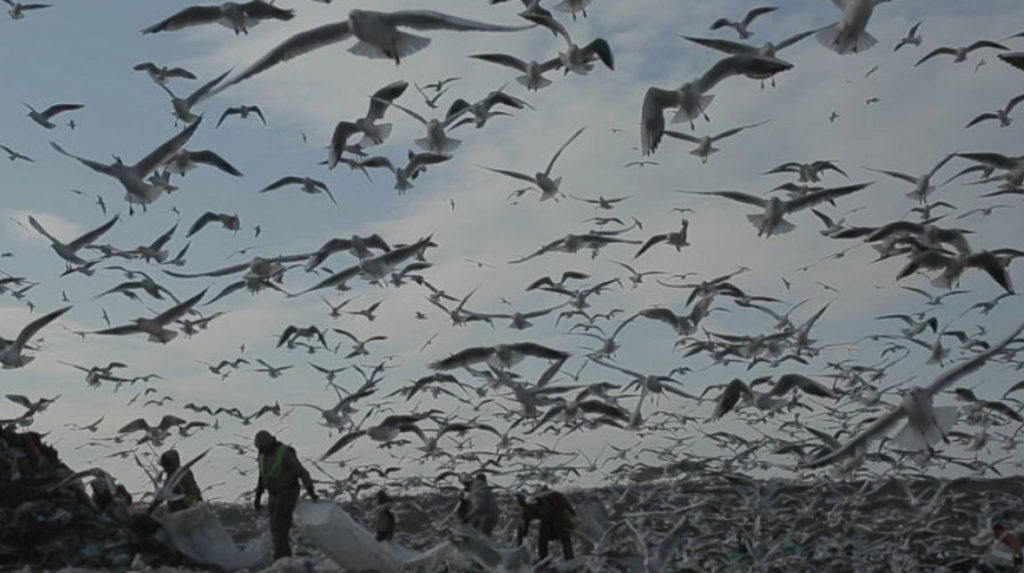
Original title: Flašaroši
Year: 2023
Runtime: 83’
Countries: Serbia, Slovenia
Languages: Serbian, Romani
Directed by: Nemanja Vojinović
Written by: Nemanja Vojinović
Cinematography by: Igor Marović
Editing by: Dragan von Petrović
Music by: Predrag Adamović
Sound design by: Boštjan Kačičnik
Sound recording by: Nemanja Vojinović
Additional cinematography by: Nemanja Vojinović
Animation by: Nikola Silić
Visual effects by: Branko Silić
Colourist: Sakis Bouzanis
Produced by: Nemanja Vojinović, Marija Stojnić
Co-produced by: Viva Videnović
Production companies: Rt Dobre Nade, Set Sail Films
Co-production companies: URGH!, RTV Slovenia
Supported by: Film Centre of Serbia, Republic of Serbia – Ministy of Culture and Media
Sales by: Taskovski Films













